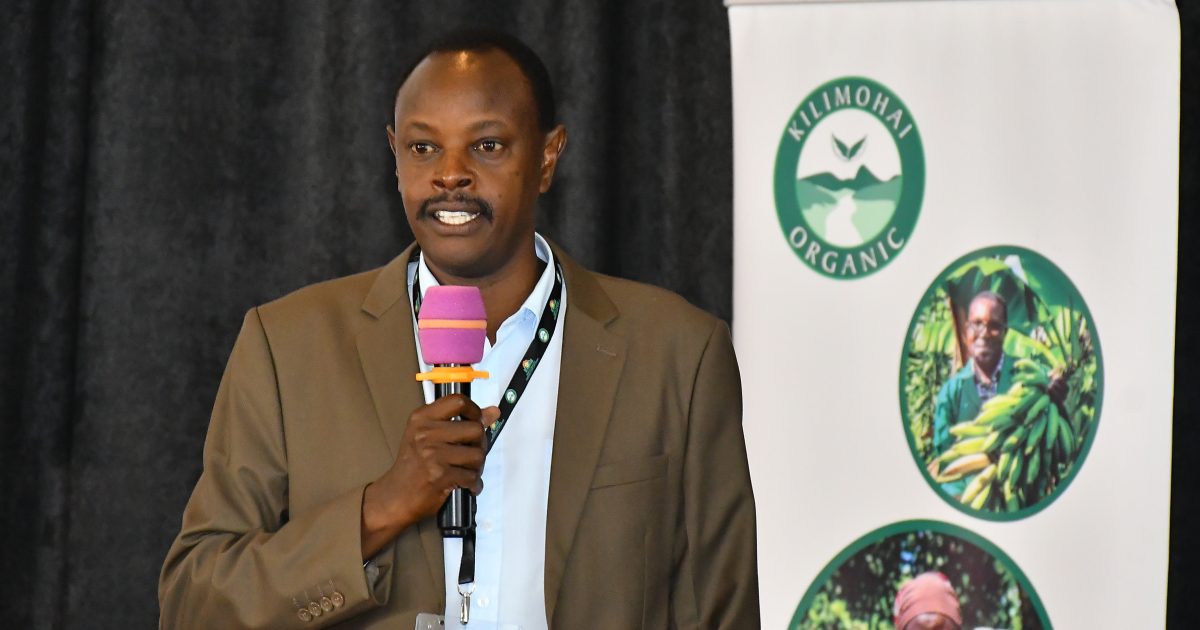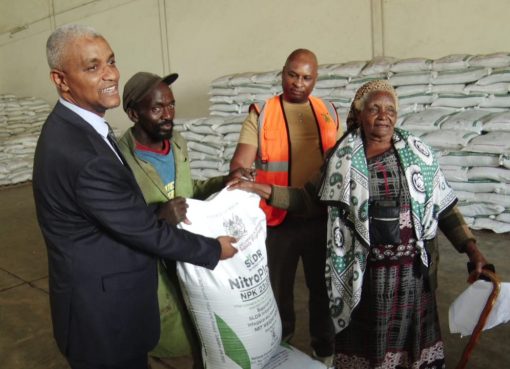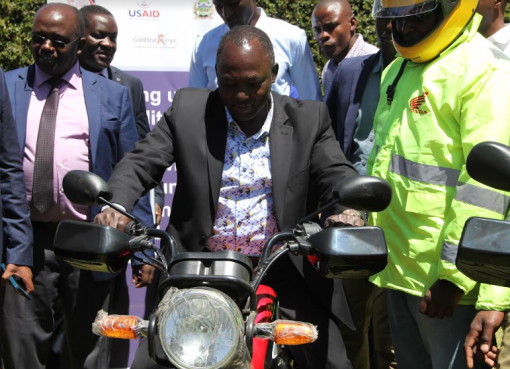The 2024 Kenya Organic Data Survey report by Kenya Organic Agriculture Network (KOAN) has revealed that there is a steady growth in organic farming across Kenya.
The survey, presents findings from the 2022 annual organic data survey collected in 2023 aiming to enhance the sectors understanding and decision-making processes in the organic sector.
The data findings show more farmers are embracing organic farming, leading to increased acreage under cultivation and a rise in the numbers of organic farms.
Organic farming is a sustainable agricultural system that uses ecologically based pest controls and biological fertilizer derived mainly from animal and plant waste.
According to the report, Kenya has experienced a substantial increase in number of organic farms from 8,004 in 2007 to 62,626 in 2022. In addition, the country has also seen a growth in organic land area, from 84,538 hectares in 2007 to 171,298 hectares in 2022.
KOAN Chief Executive Officer Eustace Kiarii while speaking during the 5th Organic Business Workshop in Nairobi said that this trend reflects growing awareness and demand for organic products, both locally and internationally given by the recognized benefits for human health, the environment and economy.
“The rising interest in and adoption of organic farming shows a promising future for organic agriculture in the country with more farmers embracing organic farming methods leading to increased acreage under cultivation” he said.
Kiarii said despite challenges such as access to markets and certification costs, stakeholders in the organic sector are exploring opportunities for innovation and collaboration to promote sustainable practices and meet consumer demands.

“The growth spikes of organic area coverage in the years 2012 -2013 and 2014- 2015 reflect a positive shift towards organic agriculture” he said adding that this highlights the sectors resilience and potential for further growth.
KOAN Programmes Manager Samuel Ndungu said during the reporting period, KOAN facilitated the certification of 1634 farmers under the Participatory Guarantee System (PGS) programme with a total acreage of 2,520 acres validating adherence to organic standards.
“Kiliomohai Organic is the standard mark of organic certification in Kenya. Certification ensures healthy and chemical free food production,” he said adding data on processors and exporters in Kenya’s organic sector underscores the importance of certification in maintaining product integrity.
Ndungu said according to the report, the organic market in Kenya offers 347 different products broadly categorized into three namely organic vegetables, organic fruits, and organic roots and tubers.
“Organic vegetables are leading the assortment at 222 products (64 percent), including cabbage, carrots, broccoli, arrowroots, cucumber, celery and amaranth among others,” he said.
He said there is a significant demand for various organic products that currently surpasses the available supply, presenting an opportunity for organic farmers and producers to expand their operations and meet the growing demand.
“There is a notable gap between demand and supply for products like tomatoes, passion fruit, bananas, broccoli” he said adding that organic sector is facing some challenges in regards to proper farming techniques and practices, marketing and distribution and supply chain management among others.
Ndungu explained that according to the report, there was a notable growth in production and consumption of various products with sweet potato leading at 502,000 units followed by butternut at 420,000 units highlighting their appeal due to nutrition and contribution to domestic market food security.
However, he noted that the gap analysis for organic products shows a varying supply level compared to demand, with onions, potatoes and carrots being well supplied at rates of 80 percent, 99 percent and 95 percent respectively.
“Passion fruit, Arrowroots, kale have lower rates of supply at 50 percent, 30 percent, and 20 percent respectively” he said adding that this indicates a significant market gap that could be addresses by boosting production of distribution efforts.
“Increasing marketing efforts, opening more organic shops, and offering subsidies on organic products can raise product awareness, expand access, lower prices and stimulate demand in the organic sector,” he further explained.
KOAN has been systematically collecting data on organic operations in Kenya since 2007, primarily through surveys targeting specific segments such as production, markets, and consumers.
Kenya Organic Agriculture Network (KOAN)is a national membership organization formed to coordinate, facilitate and provide leadership and professional services to all members and other stakeholders in the organic agriculture industry in Kenya.
By Anita Omwenga





